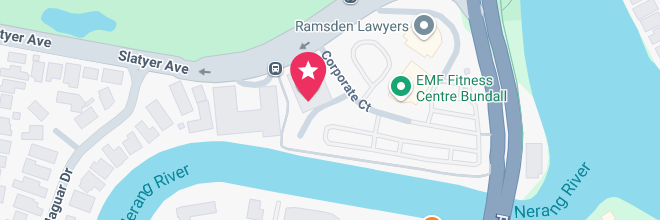Our Brisbane CBD Office
- Suite 400, Level 4/288 Edward St, Brisbane City QLD 4000
- (07) 3910 5470




Jet skis are a popular choice for thrill-seekers on Australia’s beaches, lakes, and rivers. However, these powerful watercraft are involved in numerous water accidents each year. The combination of high speeds, crowded waterways, and unpredictable conditions increases the risk of serious injuries, some of which can be life-changing.
Common jet ski accidents often lead to head trauma, fractures, and spinal injuries, all of which require urgent medical attention. Unlike motor vehicle accidents on roads, jet ski accidents pose unique legal challenges, particularly when it comes to identifying liability and compensation. In such cases, many people search for “lawyers near me” to ensure their rights are protected.
In this blog, we’ll explore the causes of jet ski accidents, the most common injuries, how these accidents differ from motor vehicle accidents, and the legal options available to victims. Whether you’ve experienced a jet ski or other water accident, knowing your rights can help you recover both physically and financially.
Jet ski accidents are often caused by a combination of human error, poor conditions, and mechanical issues. Understanding these causes can help reduce the risks of serious injury and legal complications. Below are the most common reasons jet ski accidents occur.
Speed is one of the biggest contributing factors to jet ski accidents. Riders often push their craft to high speeds and attempt risky manoeuvres, which can lead to loss of control.
Many crashes happen when riders misjudge distances or fail to slow down near crowded areas like marinas and beaches.
Operating a jet ski may seem simple, but it requires skill and understanding of water conditions. Many accidents involve riders who have never received formal instruction.
Without knowledge of basic safety procedures, inexperienced riders can easily lose control, especially in challenging conditions.
Riders who become distracted while operating a jet ski pose a danger to themselves and others.
Even a brief lapse in attention can lead to serious collisions or falls.
Operating a jet ski under the influence is dangerous and often illegal. Alcohol and drugs impair coordination and reaction times, making accidents far more likely.
Australian law treats operating a jet ski while intoxicated similarly to drink driving, with severe penalties for offenders.
During peak seasons, popular water spots become crowded, increasing the risk of collisions.
Accidents often occur when multiple watercraft are moving unpredictably without proper coordination or signalling.
Unfavourable weather can quickly turn a fun ride into a dangerous situation.
Weather can change rapidly, and many riders are caught unprepared in dangerous conditions.
Mechanical issues can strike at any moment, leading to sudden loss of control.
Regular maintenance and safety checks are crucial to prevent accidents caused by faulty equipment.
By recognising these common causes, riders can take steps to stay safe, enjoy their time on the water, and avoid preventable injuries.
Jet ski accidents can result in severe personal injuries, especially when they occur due to someone else’s negligence. These accidents may involve a reckless rider colliding with another person or a crash caused by unsafe conditions or equipment failures. Whether you were injured as a bystander or while riding a jet ski yourself, these incidents can have life-changing effects. Below are the most common types of injuries associated with jet ski accidents, often seen in cases where negligence plays a role.
Head injuries frequently occur when a jet ski crashes into another watercraft, a person, or an obstacle. These injuries can be particularly severe if the crash is due to negligent behaviour, such as speeding or reckless driving.
These injuries can result in permanent disability, requiring ongoing medical treatment and rehabilitation.
Jet ski accidents involving high-speed collisions or negligent behaviour, such as cutting across a rider’s path, can result in spinal trauma.
Spinal injuries can severely impact a person’s quality of life and require lifelong care in extreme cases.
Accidents caused by reckless operation, such as sudden turns or failure to yield, often lead to fractured bones.
When a fracture occurs due to another person’s negligence, the victim may be eligible to seek compensation for recovery costs.
Internal injuries are a hidden danger in jet ski accidents, especially when negligence leads to a high-impact crash.
Victims of negligence may claim compensation for emergency medical care and long-term complications from internal injuries.
Lacerations are common in jet ski accidents, particularly when a person is struck by a watercraft driven recklessly or carelessly.
Negligence, such as failing to maintain a safe distance from others, can often be a contributing factor in these cases.
When a negligent operator causes a crash that throws a person into the water, the risk of drowning or near-drowning increases.
Wearing a life jacket can help reduce this risk, but those injured by negligent behaviour may still face serious consequences.
Jet ski injuries are serious and often preventable. If your accident was caused by someone else’s negligence, you may be entitled to compensation for your medical costs, lost wages, and ongoing care. Seeking legal advice is crucial to protecting your rights and ensuring you receive fair compensation.
Jet ski accidents, though often compared to road-based motor vehicle accidents, present unique challenges due to the nature of watercraft operation and the legal implications that follow. While some aspects, such as negligence and liability, are similar, other factors like water conditions, jurisdictional regulations, and the potential for drowning set jet ski accidents apart. Understanding these differences is essential when pursuing a personal injury claim after a water-related accident.
Unlike cars and other motor vehicles, jet skis do not offer protective structures such as seatbelts, airbags, or a protective cabin.
This lack of protection means that injuries sustained in jet ski accidents are often more severe than those in typical road accidents.
Jet skis operate on unpredictable and constantly changing water surfaces, unlike cars that drive on relatively stable roads.
Environmental factors play a significant role in jet ski accidents, often complicating the determination of liability.
Jet ski accidents typically involve different types of collisions compared to road accidents.
These collision scenarios are unique to watercraft and require specialised investigation to establish fault.
A major difference between jet ski and motor vehicle accidents is the risk of drowning.
Drowning risks make jet ski accidents particularly dangerous, requiring swift rescue efforts to prevent fatal outcomes.
Accidents on waterways are governed by maritime and state laws, which differ from road traffic laws.
These legal differences can impact how personal injury claims are handled and the compensation victims may receive.
Equipment failure is a more common factor in jet ski accidents than in road accidents.
Investigating the cause of the accident may involve examining the maintenance history of the jet ski and other equipment involved.
Jet ski accidents involve many unique risks and complications that require specialised legal knowledge. If you have been injured due to someone else’s negligence, understanding these differences can help you take the right steps toward securing compensation for your injuries.
Experiencing a jet ski accident can be overwhelming, especially if serious injuries or property damage are involved. Knowing what steps to take immediately after the accident can protect your health, legal rights, and potential compensation claim. Whether you were injured due to another person’s negligence or a mechanical failure, these steps are crucial in building a strong case.
The first priority after any accident is to ensure everyone’s safety.
Prompt medical documentation of your injuries can also serve as crucial evidence for your personal injury claim.
In many jurisdictions, accidents involving serious injury, death, or significant property damage must be reported to authorities.
Failing to report the accident may complicate your ability to seek compensation later.
If other parties were involved in the accident, it’s essential to exchange contact and insurance information.
Having this information will make it easier to pursue a personal injury or property damage claim.
Gathering evidence immediately after the accident can strengthen your case, especially if negligence played a role.
Detailed documentation can help establish liability and prove the severity of your injuries.
It’s important to avoid discussing the accident publicly, particularly on social media.
Remaining discreet can prevent misunderstandings or misrepresentations of your situation.
Inform your insurance company about the accident as soon as possible, especially if you plan to make a claim for medical expenses or property damage.
Your insurance provider may offer guidance on next steps, including potential compensation options.
If you believe the accident was caused by another person’s negligence or faulty equipment, consulting a personal injury lawyer is essential.
Having legal representation can increase your chances of receiving fair compensation for your injuries and other losses.
By following these steps, you can protect your health and legal rights after a jet ski accident. Acting quickly and carefully can make all the difference in ensuring a successful recovery, both physically and financially.
If you’ve been injured in a jet ski accident due to someone else’s negligence, you may be entitled to compensation through a personal injury claim. Jet ski accidents can involve complex legal issues, including questions of liability, insurance coverage, and maritime law. Understanding your legal options can help you take the right steps to secure compensation for medical bills, lost wages, and other damages.
Liability is a key factor in any personal injury claim. In jet ski accidents, several parties could be held responsible depending on the circumstances.
Establishing liability often requires a thorough investigation of the accident scene, witness statements, and expert analysis.
Victims of jet ski accidents may be eligible to claim compensation for a variety of damages.
Calculating the full extent of damages often requires input from medical and financial experts to ensure you receive fair compensation.
Insurance coverage for jet ski accidents can vary depending on the type of policy and the parties involved.
Insurance claims for water accidents can be complex, especially if multiple parties are involved. It’s crucial to understand your policy’s coverage limits and exclusions.
In Australia, personal injury claims are subject to time limits, often referred to as statutes of limitation.
Failing to file a claim within the legal time frame may result in losing the right to seek compensation, making early legal advice essential.
Strong evidence is crucial to building a successful injury claim. Important types of evidence include:
Gathering this evidence early can strengthen your claim and improve your chances of reaching a favourable settlement.
Navigating a personal injury claim after a jet ski accident can be challenging without legal expertise. A lawyer experienced in water accidents can:
By consulting a personal injury lawyer early, you can gain a clearer understanding of your legal options and increase the likelihood of a successful claim.
The most common injuries include head trauma, spinal injuries, and fractures. These often occur when a rider is thrown from the jet ski due to high-speed collisions or reckless behaviour by other watercraft operators.
Yes, you may be able to file a personal injury claim if another person’s negligence caused your injuries. This may include compensation for medical bills, lost income, and pain and suffering.
Seek medical attention immediately, report the accident to authorities, gather evidence (such as photos and witness information), and consult a personal injury lawyer to discuss your legal options.
Liability can fall on various parties, including the negligent rider, a rental company (if equipment failure was a factor), or a boat operator whose actions created hazardous conditions.
Yes, jet ski accidents involve additional complexities such as maritime laws, water safety regulations, and different insurance considerations. It’s essential to work with a lawyer experienced in watercraft injury claims.
In most cases in Australia, you have up to three years from the date of the accident to file a claim. However, exceptions may apply, so it’s best to seek legal advice as soon as possible.
Coverage depends on the type of policy involved. Some jet skis are covered under specific watercraft insurance, while others may fall under third-party liability insurance. Your lawyer can help determine what coverage applies to your case.
Key evidence includes accident reports, medical records, witness statements, and photos or videos of the accident scene and injuries. This evidence helps prove negligence and the extent of your damages.
Here are three resources related to jet ski and water safety regulations in Australia that can help you understand your rights and responsibilities:
Jet ski accidents can lead to severe injuries and complex legal issues, particularly when caused by someone else’s negligence. These incidents are unique compared to other motor vehicle accidents due to the lack of protection, unpredictable water conditions, and the risk of drowning. If you’ve been injured, knowing your rights and taking the proper steps—such as reporting the accident, seeking medical attention, and collecting evidence—is crucial for a successful personal injury claim.
Liability in jet ski accidents may fall on various parties, including negligent operators, rental companies, or manufacturers of faulty equipment. Compensation can cover medical expenses, lost wages, pain and suffering, and property damage. Navigating insurance policies and maritime law can be challenging without expert guidance, making it essential to seek advice from a lawyer experienced in water-related accidents.
By understanding the causes of jet ski accidents and your legal options, you can protect your health and financial well-being. If you’ve been injured, don’t wait—act quickly to secure the compensation you deserve for your recovery and peace of mind. Staying informed and prepared can make a significant difference in both preventing accidents and handling their aftermath.
Kathryn is Trilby Misso’s Chief Executive Officer.
Meet KathrynUse this simple online tool and find out if you have a claim in less than thirty seconds. You can choose to remain anonymous.
Your next step is a small one. All you need to do is give us a call on 07 3910 5470 or complete this form here to arrange a quick chat.
During this initial conversation, we will:

We understand that taking legal action can be stressful, and we’ll do all we can to ease your concerns.
The chat can take place at our place, your place, or by phone. There is no cost, no pressure, and no obligation.
Call 07 3910 5470 or fill out this form, and we’ll get back to you within 2 hours (during business hours). We look forward to meeting you.
enquire now